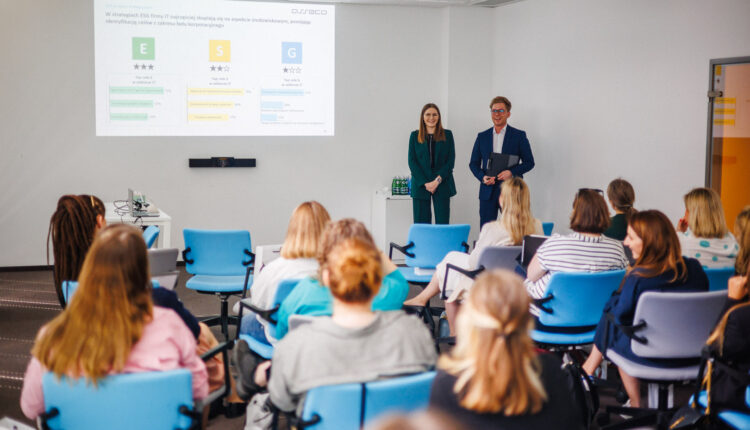
19 Apr Academy of ESG Women Leaders at Asseco
Posted at 13:29h
in Korporacyjne
How does ESG affect the formation of a business strategy? Can it limit a company’s competitiveness? How to plan ESG activities as part of an organization’s investment? Answers to these questions, among others, were provided to the participants of the 1st edition of the Academy of Female ESG Leaders organized by the Lesław A. Paga Foundation. Asseco, which is the program’s partner, organized a panel discussion for them, which in early April was attended by representatives of the financial market.
Asseco experts, together with representatives of: BNP Paribas Bank Polska, Santander Bank Polska, Veleo Bank and Visa discussed key topics related to ESG transformation. During the meeting with the participants of the ESG Leaders Academy, issues such as the influence of consumers as well as counterparties on the setting of standards by organizations were raised. Experts also discussed the impact of financial markets on changes in the awareness of company management boards. They also considered whether ESG, as opposed to CSR, will significantly influence trends and shape the strategies of European businesses and whether it will limit their competitiveness compared to Asian and American companies.
“The Academy of Female ESG Leaders is a program aimed at female students, graduates and active professionals – who identify with ESG innovation or implement its goals in their organizations,” said Eliza Konotopska, Head of Environmental Office, Asseco Poland. We are pleased that we were able to introduce them to our activities and create a platform at Asseco for sharing ESG knowledge and experience between the IT and financial sectors, she added.
The ESG Female Leaders Academy, of which Asseco is a partner, is a program for women who understand that dealing with the complexities of modern business requires creating long-term value for stakeholders. It supports female leaders in implementing changes from analysis, creating a strategy consistent with the business model, through non-financial reporting, to soft training in negotiations and speeches, among others.


